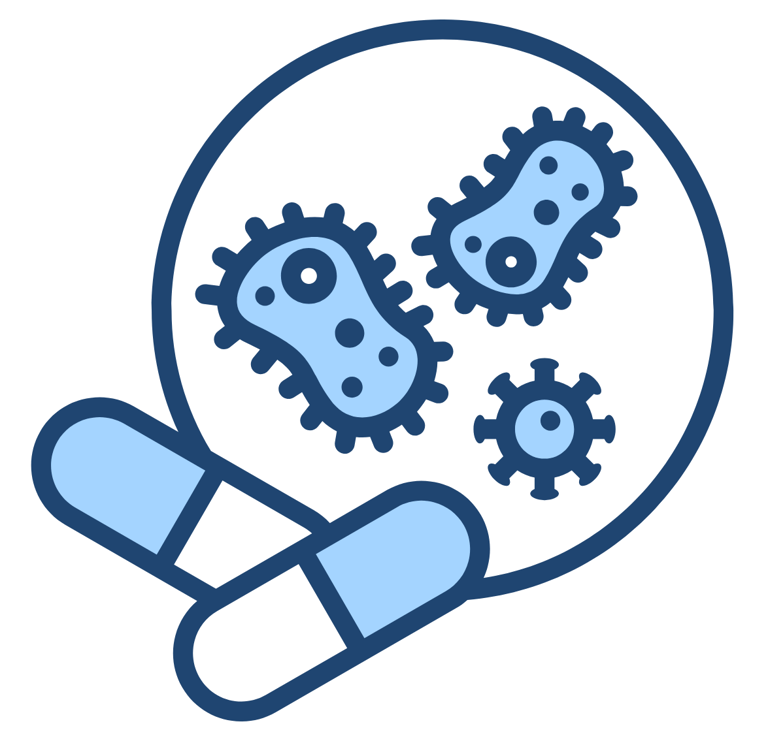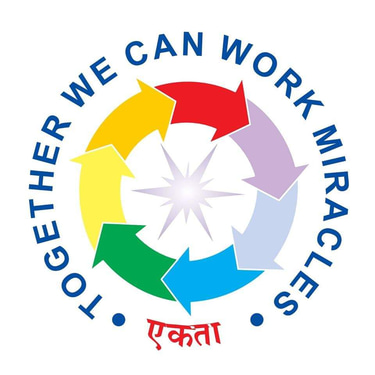Antibiotics: The Panacea That Isn't – Understanding the Growing Crisis of Antibiotic Abuse
1/4/20243 min read


In recent years, the rampant misuse of antibiotics has become one of the most pressing concerns in global healthcare. The situation is particularly alarming in India, where antibiotics are frequently prescribed unnecessarily, leading to the rise of antibiotic-resistant bacteria.
A striking example of the growing concerns around antibiotic abuse comes from the UK. The British government has taken a significant step by penalizing doctors who prescribe antibiotics without good reason. The UK's National Institute for Health and Care Excellence (NICE) has recommended that healthcare providers face disciplinary action for yielding to patient demands for antibiotics. The focus has shifted to the need for better diagnosis and more responsible prescription practices to address the growing crisis of antibiotic resistance.
The Growing Problem of Antibiotic Resistance in India
In India, the issue is compounded by several factors. As highlighted by the SHOPS Project (Strengthening Health Outcomes through the Private Sector), 80% of medical prescriptions in India involve antibiotics, regardless of whether they are needed. In rural areas, where healthcare services are more accessible, diagnostic practices often remain underdeveloped. Consequently, antibiotics are often prescribed as a precautionary measure, even when the underlying cause of illness is viral, and antibiotics are ineffective.
Why is Antibiotic Misuse So Prevalent in India?
There are two significant reasons why doctors tend to over-prescribe antibiotics in India:
Fear of Missing a Diagnosis: Many doctors feel compelled to prescribe antibiotics to cover a broad range of potential bacterial infections, even when a diagnosis is unclear. This results in the unnecessary use of broad-spectrum antibiotics, which increases the risk of antibiotic resistance.
Competitive Pressures: In a healthcare landscape where multiple doctors are available to treat patients, there is the fear that if one doctor doesn’t prescribe antibiotics, another will, leading to the loss of patients.
Antibiotics and Pediatric Care: A Dangerous Trend
In pediatric care, particularly for common conditions like upper respiratory infections and watery diarrhea, antibiotics are often prescribed unnecessarily. The misconception that children cannot recover quickly without antibiotics is widely held, even though most of these infections are viral, and antibiotics are ineffective against them.
How Antibiotics Are Misused in Children’s Health
Upper Respiratory Infections (URIs): Viral URIs are the most common condition for which antibiotics are overprescribed.
Diarrhea: Antibiotics are frequently given to children suffering from diarrhea, even though the cause is often viral.
The Dangers of Overuse in Children
The overuse of antibiotics in children can lead to:
Antibiotic Resistance: Bacteria evolve to become resistant to commonly used antibiotics, making it more difficult to treat infections effectively.
Masking of the True Diagnosis: Early antibiotic use can obscure the real cause of the illness, such as urinary tract infections, making it harder to establish a proper treatment plan.
The Growing Threat of Antibiotic-Resistant Infections
Antibiotic resistance is a serious, growing threat to global public health. The misuse and overuse of antibiotics are key contributors to the development of "superbugs"—bacteria that are resistant to multiple antibiotics. In fact, multi-drug-resistant tuberculosis (MDR-TB) is already a significant challenge in India and worldwide, making treatment more difficult, expensive, and time-consuming.
Why Is Antibiotic Resistance a Critical Concern?
Superbugs: As bacteria become resistant to antibiotics, they become harder to treat, leading to longer hospital stays, more intensive care, and a higher risk of death.
Limited Treatment Options: The rise of antibiotic resistance means that fewer effective treatment options are available, particularly for infections like tuberculosis, which require specialized drugs.
The Need for Judicious Antibiotic Use: A Call for Education and Awareness
One of the most effective ways to combat the misuse of antibiotics is through education. Doctors and patients alike must understand that antibiotics should only be used when necessary and after a proper diagnosis. In particular, educating the public about the demystification of fever can help curb the reliance on antibiotics.
Key Strategies for Judicious Antibiotic Use:
Accurate Diagnosis: Proper diagnosis is crucial in determining when antibiotics are needed. Many infections are viral, and antibiotics are ineffective.
Patient Education: Educating patients about the dangers of self-medication and the overuse of antibiotics can reduce unnecessary prescriptions.
Stronger Regulations: Governments and healthcare bodies must implement stricter regulations on the over-the-counter sale of antibiotics.
Preventing Antibiotic Abuse: A Global Responsibility
Antibiotic abuse is a global issue, and it is important to take collective responsibility to ensure that antibiotics remain an effective tool in fighting bacterial infections. Healthcare providers must be diligent in their prescribing practices, while patients must be educated on the appropriate use of antibiotics. Together, we can prevent the rise of antibiotic-resistant infections and preserve the efficacy of antibiotics for future generations.
Conclusion: The Need for Action and Awareness
The over-prescription of antibiotics is a critical issue, particularly in countries like India, where both healthcare professionals and patients often misuse these powerful drugs. By focusing on proper diagnosis, public education, and regulatory changes, we can reduce the unnecessary use of antibiotics and combat the growing threat of antibiotic resistance. It is time to move away from the outdated practice of using antibiotics for viral infections and take a more scientific, evidence-based approach to prescribing these life-saving medications.
Key Takeaways:
Antibiotics should be used only when necessary and based on a proper diagnosis.
Public education and doctor training are crucial to reducing misuse.
Antibiotic resistance is a global health threat that requires immediate attention.
By fostering awareness and promoting responsible antibiotic use, we can help ensure that antibiotics remain an effective tool in modern medicine.
EKTA INSTITUE OF CHILD HEALTH
Shankar Nagar Road,
Near Ram Mandir, New Shanti Nagar,
Raipur, Chhattisgarh - 492001
Ekta Institute of Child Health – a unit of Sparkle Hospital Pvt Ltd
